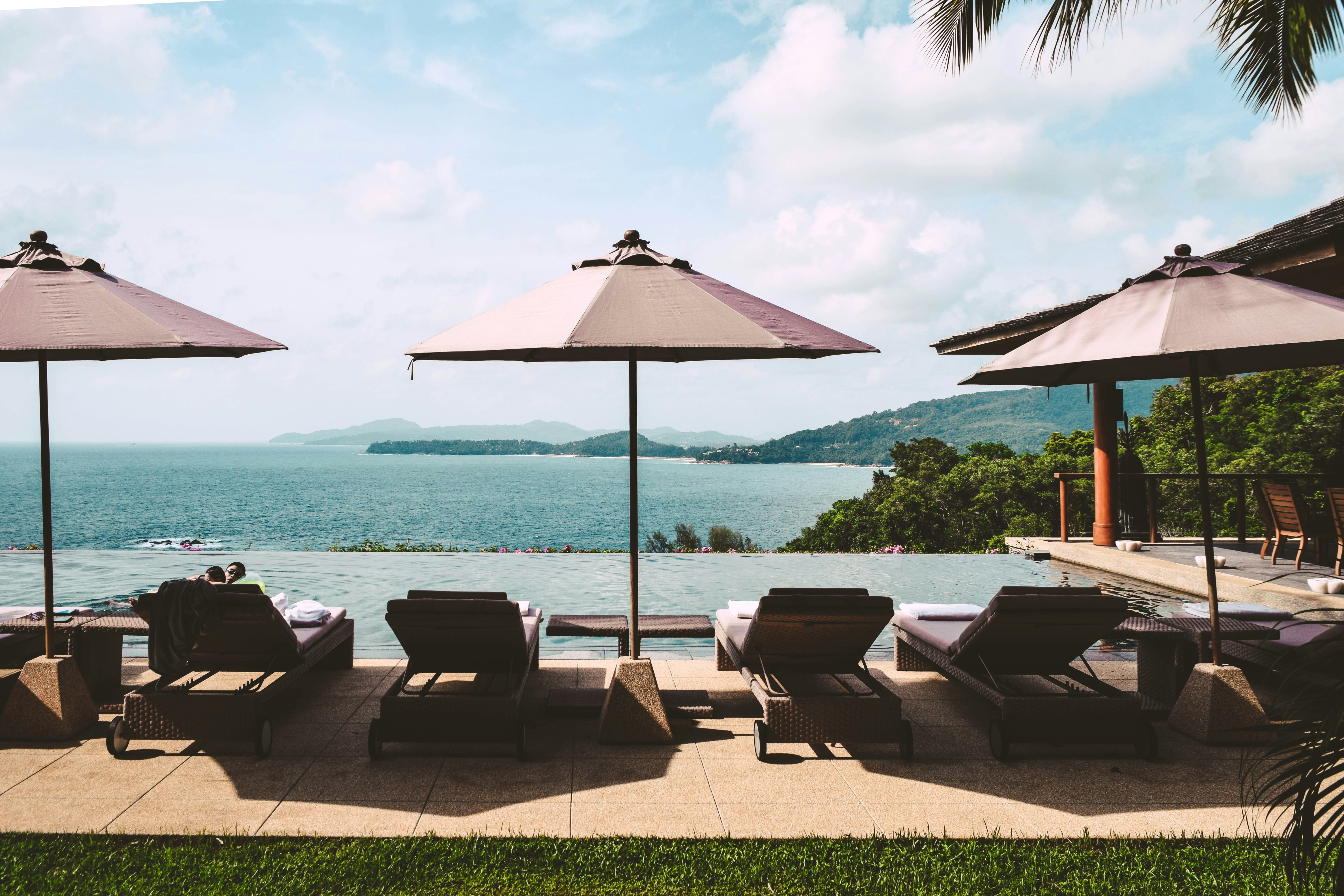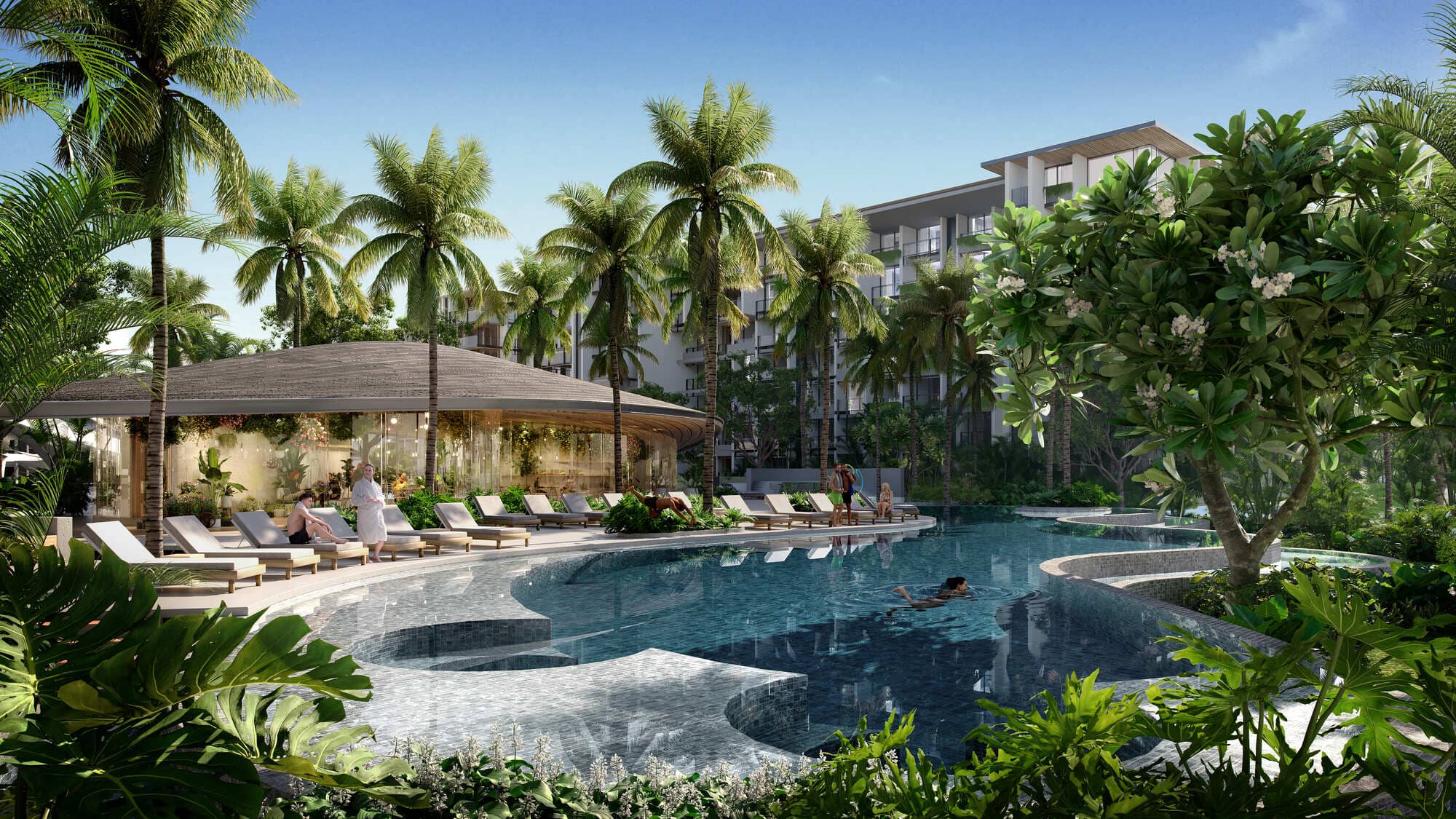Thailand: Asia’s new investment hub
What comes to mind first? Probably endless white-sand beaches, turquoise waters, and spicy street food. But beyond these dreamy images, Thailand is quietly transforming into a leading smart investment destination in Asia – a place not just for vacation but for building long-term wealth.
A strong and stable economic foundation
While global markets remain unpredictable, Thailand's economy stands out for its resilience. With steady GDP growth of around 3% annually and low inflation (1–2%), the country offers a reliable environment for investors looking for stable returns.
Baht stability and infrastructure growth
The Thai Baht has shown impressive stability, fluctuating by less than 3% against the US dollar between 2022 and 2024.
Supporting this economic strength are massive infrastructure projects such as new high-speed rail lines and Phuket’s second airport planned for 2031. These developments signal a clear commitment to long-term, sustainable growth beyond tourism alone.
Thailand tourism: A powerful growth engine
Tourism remains Thailand’s economic heartbeat. In 2024, over 36 million visitors arrived, surpassing pre-pandemic levels. But Thailand is no longer just a temporary stop – it’s becoming a second home for many.
.png)
Phuket's transformation
Phuket has evolved from a backpacker's paradise to a dynamic hub for digital nomads, retirees, and international families. The island's year-round appeal ensures steady rental demand, making it attractive for property investors seeking consistent income.
Visa options supporting long stays
- Thai Elite Visa (valid up to 20 years)
- 10-year Long-Term Resident Visa
- Retirement visas (for individuals 50+)
- Digital nomad visa (for remote professionals)
Quality of life: Why people stay for good
It’s easy to see why many visitors choose to make Thailand their permanent home. The country offers a rare mix of modern comforts and deep-rooted culture.
Thailand’s healthcare system is among the best in Asia, and Phuket alone hosts 15 international schools, making it ideal for families.
Coastal regions like Phuket provide cleaner air and abundant green spaces, creating a healthier environment than most Asian megacities. Beyond natural beauty, practical advantages like fast internet, modern hospitals, and a vibrant food scene make day-to-day life even more appealing.
Real estate market in Thailand: Opportunities for every investor
Ownership options for foreigners
Foreigners can legally own:
- Condominiums (freehold ownership of up to 49% of a building’s total area; leasehold options are also available)
- Villas on long-term leasehold agreements (up to 90 years)
Strict zoning protections
Phuket has strict zoning laws: only around 20% of the land is allowed for residential development. Regulations on height and density help avoid overbuilding, preserving property value and the island’s natural charm.
Attractive prices and strong growth potential
Competitive entry prices
Phuket’s real estate market stands out for its relatively affordable prices compared to other resort destinations.
- Villas start at approximately $300,000, often featuring private pools, sea views, and luxury finishes.
- Condos start around $80,000, with higher prices for prime locations near beaches or international schools.
In comparison, beachfront villas in Bali typically start at $500,000–$700,000, and in Dubai, prices often exceed $1 million for similar properties. Phuket thus offers exceptional value for money.
High rental yields
Rental yields in Phuket are a major draw, often ranging from 6% to 8% per year. In prime beachfront locations, yields can even reach 9%–10%.
Phuket’s tourism-driven rental market favors short-term stays (daily or weekly), which generally generate 20%–30% higher returns than long-term leases. Many investors use platforms like Airbnb or hire local property managers to maximize occupancy and income.
.png)
How to maximize your returns in Thailand
Invest early in under-construction projects
Buying during pre-sale or construction phases often provides discounts of 20%–30%, giving you immediate equity growth once completed.
Choose prime locations
Properties on the beachfront or in popular areas like Laguna Phuket and Bang Tao deliver higher rental yields and stronger capital appreciation.
Partner with professional management services
Experienced local companies handle bookings, maintenance, and marketing, optimizing occupancy rates and nightly revenue even if you live overseas.
Why Thailand is the smart investment destination for 2025
Thailand is more than just a holiday hotspot – it’s a lifestyle choice and an intelligent investment strategy. The combination of a stable economy, foreign-friendly visa policies, excellent infrastructure, and luxurious yet affordable living makes it a top global choice.
Phuket, in particular, stands out for its tropical beauty, modern amenities, strong returns, and welcoming international community that makes newcomers feel at home.
Thailand is positioning itself as Asia’s new investment hub, offering not just a dream lifestyle but solid financial growth. If you’re seeking a place that balances beauty, comfort, and investment value, Phuket is the clear choice.
👉 Learn more about opportunities and strategy in Thailand

FAQ: Investing in Thai real estate
Can foreigners own land in Thailand?
No, foreigners cannot directly own land. However, they can own freehold condominiums and lease land on long-term contracts.
Is property in Phuket a good investment?
Absolutely! With strict zoning, strong tourist demand, and year-round appeal, Phuket real estate typically offers great capital appreciation and attractive rental income.
How safe is it to invest in Thailand?
Very safe, as long as you work with licensed professionals and conduct proper due diligence.
What taxes apply when buying property?
Main taxes include a transfer fee (~2%), specific business tax (~3.3% if sold within five years), and stamp duty (~0.5%). Maintenance fees depend on the development.
Can I manage my property remotely?
Yes! Many developers offer full-service solutions, including rental management, maintenance, and even furnishing.
How can I finance a property purchase in Thailand?
Most foreigners buy with cash, but some local banks offer loans with stricter conditions. Many developers also provide installment plans.

.svg)

.jpg)

.jpg)


